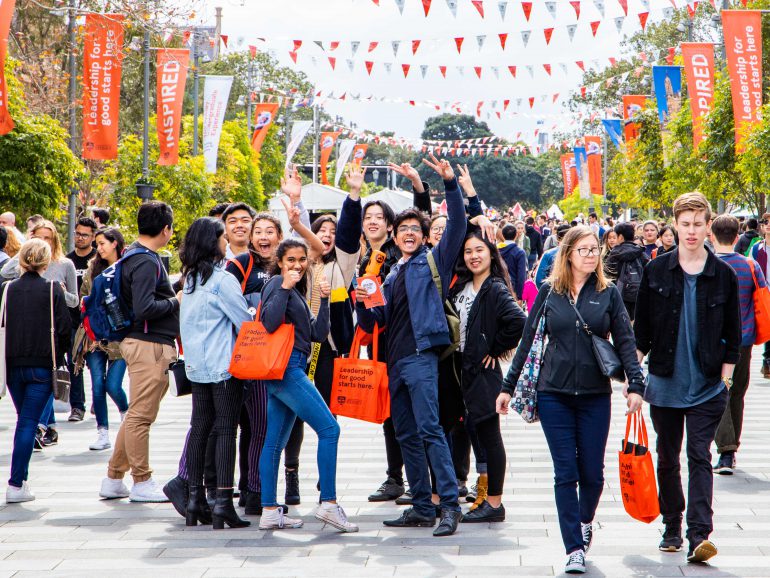A new Widening Participation grant category has recently been established as part of the University’s Strategic Education Grant (SEG) scheme. This new category aims to promote and embed innovative and inclusive educational practices across teaching and learning at the University of Sydney. Grants of up to $50,000 are available to support initiatives enabling students from traditionally underrepresented backgrounds (such as students from low socio-economic status (low-SES) backgrounds, Aboriginal and Torres Strait Islander backgrounds, and/or regional and remote areas) to engage with, and succeed at, the University of Sydney, in line with the University’s 2016–20 Strategic Plan.
We aim to create and sustain a university in which, for the benefit of both Australia and the wider world, the brightest researchers and the most promising students, whatever their social or cultural background, can thrive and realise their potential.
(Vision, Strategic Plan 2016-2020, University of Sydney, p.2)
This article was contributed by Mary Teague, Esther Robertshawe, Katy Head, Adam Bridgeman, and Samantha Clarke.
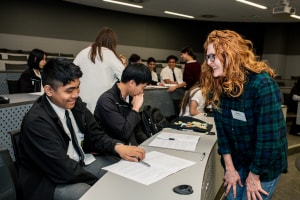
What is “Widening Participation”?
Widening Participation is the term used around the world to describe initiatives that aim to increase the access, transition, and retention of students from backgrounds that are traditionally underrepresented in higher education. In Australia, this includes students from low-SES backgrounds, regional or remote areas, and/or Aboriginal and Torres Strait Islander backgrounds.
Widening Participation at the University of Sydney
In 2009, Widening Participation and Outreach (WPO) (formally Social Inclusion Unit) was established at the University of Sydney as a result of the Bradley review, which challenged universities to achieve an undergraduate enrolment target of 20% of students from low-SES backgrounds. In 2011, the University of Sydney became a founding member of Bridges to Higher Education and was awarded funding by the Commonwealth Government’s Higher Education Participation and Partnerships Program (HEPPP) to improve the access and participation of targeted student cohorts. Seed funding was used to stimulate initiatives at a faculty level across the University, with some of these continuing today such as The Link Project in the Faculty of Arts and Social Sciences.
Widening Participation Grants
What is the purpose of Widening Participation grants?
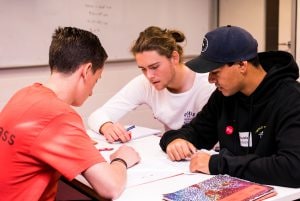
Widening Participation (WP) grants are designed to support projects that serve existing units of study, programs, and degrees, as well as projects that can be applied holistically across schools or faculties. They must focus on teaching and learning initiatives that intend to positively impact students’ university experience, engagement, and success. WP grants can also be used for projects that will build the University’s research agenda on social inclusion/exclusion and link to widening participation objectives documented in faculty strategies, the Student Experience Strategy, and the Transition and Career Paper (TAC). Grant projects may also support the career transition of students from underrepresented backgrounds into employment or further study (Strategy 4).
What does a Widening Participation grant look like?
Small (up to $12,000), medium (up to $35,000), and large (up to $50,000) grants are available in the Widening Participation category. The difference between the grant sizes is intended to reflect the level of support required to complete the project and the impact the project will achieve. Small grants should aim to target changes in teaching approaches at the unit of study level (e.g. embedding inclusive teaching approaches into a single unit). Medium to large grants would demonstrate innovations with a strategic focus looking at barriers within a course or program, and what can put in place to remove those barriers. At a faculty level, grants may be used to identify and implement widening participation across entire programs or degrees or even within entire faculty (e.g. to develop a faculty-based social inclusion planning agenda).
What are some possible project areas?
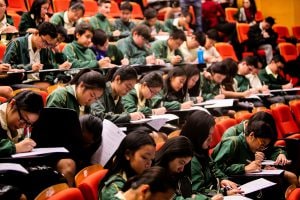
The University of Sydney, through WPO, already has a well-established outreach program that engages with faculties and schools. The intent of these widening participation grants is to focus on teaching and learning initiatives and research relevant to the experience and participation of students from underrepresented backgrounds at the University of Sydney. This research may include inclusive pedagogy and whole faculty programs that engage and support students from low-SES backgrounds.
Suggested topics for projects include initiatives to improve or research factors that contribute to transition and graduate success for students from low-SES backgrounds at the University, institutional barriers that are specific to the University, and inclusive design for student learning and assessment. Some recent research can be found be found on the National Centre for Excellence in Student Equity in Higher Education and the Centre for Excellence in Equity in Higher Education websites.
Project examples that relate to the University’s Access and Participation Plan for 2018 and 2019 include:
- the intersectionality of first in family and low-SES student experience at the University of Sydney,
- first year transition programs, and
- programs that positively impact the retention and success of students from low-SES backgrounds.
Can I use a Widening Participation grant to present at a conference?
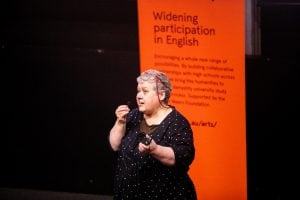
Unlike other SEGs, WP grants allow you to include conference attendance (and presentation) as part of the grant, in order to share your work with the broader WPO community. There are many opportunities to share your widening participation initiatives and research in 2020. You might wish to consider conferences such as STARS, the British Educational Research Associated (BERA) annual conference, or Equity Practitioners in Higher Education in Australasia (EPHEA) conferences, to name a few. These are also good places to start looking for inspiration for new widening participation initiatives that can be applied to your teaching and learning context at Sydney.
Can I include educational research?
Also differing from other SEG categories, Widening Participation proposals involving education research are welcome. A small caveat to this is that, given the timeframe of the SEG cycle (one year), you must already have human ethics applications approved before the grant is accepted in order for research support to be granted. Delays relating to human ethics applications approval will not be permitted.
For more information on human ethics applications or to start the application process now, please see the Human Ethics page on the intranet.
How do I apply?
For more information on the Widening Participation grant application process or the Strategic Education Grants in general, visit awards and grants on the intranet. You can also attend the information session in early July.
Grant applications open 15 July and close 31 August. To submit an application, visit the Strategic Education Grant intranet page for the link to the online application system.
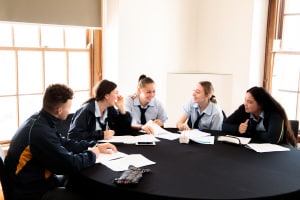
Other resources
You may find the following resources useful to assist you with your Widening Participation grant:
- Higher Education Participation and Partnership Programme (HEPPP)
- Widening Participation and Outreach (WPO), the University of Sydney
- HEPPP Access and Participation Plans
- National Centre of Student Equity in Higher Education

